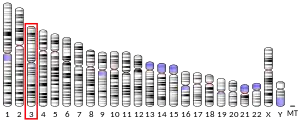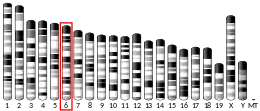| RAD18 | |||||||||||||||||||||||||||||||||||||||||||||||||||
|---|---|---|---|---|---|---|---|---|---|---|---|---|---|---|---|---|---|---|---|---|---|---|---|---|---|---|---|---|---|---|---|---|---|---|---|---|---|---|---|---|---|---|---|---|---|---|---|---|---|---|---|
| |||||||||||||||||||||||||||||||||||||||||||||||||||
| Identifiers | |||||||||||||||||||||||||||||||||||||||||||||||||||
| Aliases | RAD18, RNF73, E3 ubiquitin protein ligase, RAD18 E3 ubiquitin protein ligase | ||||||||||||||||||||||||||||||||||||||||||||||||||
| External IDs | OMIM: 605256 MGI: 1890476 HomoloGene: 48572 GeneCards: RAD18 | ||||||||||||||||||||||||||||||||||||||||||||||||||
| |||||||||||||||||||||||||||||||||||||||||||||||||||
| |||||||||||||||||||||||||||||||||||||||||||||||||||
| |||||||||||||||||||||||||||||||||||||||||||||||||||
| |||||||||||||||||||||||||||||||||||||||||||||||||||
| Wikidata | |||||||||||||||||||||||||||||||||||||||||||||||||||
| |||||||||||||||||||||||||||||||||||||||||||||||||||
E3 ubiquitin-protein ligase RAD18 is an enzyme that in humans is encoded by the RAD18 gene.[5][6][7] A knockout in a human colorectal cancer cell line, HCT116, has also been created.[8]
Function
The protein encoded by this gene is highly similar to S. cerevisiae DNA damage repair protein Rad18. Yeast Rad18 functions through interaction with Rad6, which is a ubiquitin-conjugating enzyme required for post-replication repair of damaged DNA. Similar to its yeast counterpart, this protein is able to interact with the human homolog of yeast Rad6 protein through a conserved ring finger motif. Mutation of this motif results in defective replication of UV-damaged DNA and hypersensitivity to multiple mutagens.[7]
Interactions
RAD18 has been shown to interact with HLTF,[9] UBE2B[5][6] and UBE2A.[5][6]
References
- 1 2 3 GRCh38: Ensembl release 89: ENSG00000070950 - Ensembl, May 2017
- 1 2 3 GRCm38: Ensembl release 89: ENSMUSG00000030254 - Ensembl, May 2017
- ↑ "Human PubMed Reference:". National Center for Biotechnology Information, U.S. National Library of Medicine.
- ↑ "Mouse PubMed Reference:". National Center for Biotechnology Information, U.S. National Library of Medicine.
- 1 2 3 Tateishi S, Sakuraba Y, Masuyama S, Inoue H, Yamaizumi M (July 2000). "Dysfunction of human Rad18 results in defective postreplication repair and hypersensitivity to multiple mutagens". Proceedings of the National Academy of Sciences of the United States of America. 97 (14): 7927–32. Bibcode:2000PNAS...97.7927T. doi:10.1073/pnas.97.14.7927. PMC 16647. PMID 10884424.
- 1 2 3 Xin H, Lin W, Sumanasekera W, Zhang Y, Wu X, Wang Z (July 2000). "The human RAD18 gene product interacts with HHR6A and HHR6B". Nucleic Acids Research. 28 (14): 2847–54. doi:10.1093/nar/28.14.2847. PMC 102657. PMID 10908344.
- 1 2 "Entrez Gene: RAD18 RAD18 homolog (S. cerevisiae)".
- ↑ Shiomi N, Mori M, Tsuji H, Imai T, Inoue H, Tateishi S, Yamaizumi M, Shiomi T (2007-01-01). "Human RAD18 is involved in S phase-specific single-strand break repair without PCNA monoubiquitination". Nucleic Acids Research. 35 (2): e9. doi:10.1093/nar/gkl979. PMC 1802632. PMID 17158148.
- ↑ Unk I, Hajdú I, Fátyol K, Hurwitz J, Yoon JH, Prakash L, Prakash S, Haracska L (March 2008). "Human HLTF functions as a ubiquitin ligase for proliferating cell nuclear antigen polyubiquitination". Proceedings of the National Academy of Sciences of the United States of America. 105 (10): 3768–73. Bibcode:2008PNAS..105.3768U. doi:10.1073/pnas.0800563105. PMC 2268824. PMID 18316726.
Further reading
- Maruyama K, Sugano S (January 1994). "Oligo-capping: a simple method to replace the cap structure of eukaryotic mRNAs with oligoribonucleotides". Gene. 138 (1–2): 171–4. doi:10.1016/0378-1119(94)90802-8. PMID 8125298.
- Suzuki Y, Yoshitomo-Nakagawa K, Maruyama K, Suyama A, Sugano S (October 1997). "Construction and characterization of a full length-enriched and a 5'-end-enriched cDNA library". Gene. 200 (1–2): 149–56. doi:10.1016/S0378-1119(97)00411-3. PMID 9373149.
- Mulder LC, Chakrabarti LA, Muesing MA (July 2002). "Interaction of HIV-1 integrase with DNA repair protein hRad18". The Journal of Biological Chemistry. 277 (30): 27489–93. doi:10.1074/jbc.M203061200. PMID 12016221.
- Nikiforov AA, Sasina LK, Svetlova MP, Solovjeva LV, Oei SL, Bradbury EM, Tomilin NV (2004). "Early immobilization of nuclease FEN1 and accumulation of hRAD18 protein at stalled DNA replication forks in mammalian cells". Doklady Biochemistry and Biophysics. 389: 122–5. doi:10.1023/A:1023696425171. PMID 12856420. S2CID 2646911.
- Beausoleil SA, Jedrychowski M, Schwartz D, Elias JE, Villén J, Li J, Cohn MA, Cantley LC, Gygi SP (August 2004). "Large-scale characterization of HeLa cell nuclear phosphoproteins". Proceedings of the National Academy of Sciences of the United States of America. 101 (33): 12130–5. Bibcode:2004PNAS..10112130B. doi:10.1073/pnas.0404720101. PMC 514446. PMID 15302935.
- Watanabe K, Tateishi S, Kawasuji M, Tsurimoto T, Inoue H, Yamaizumi M (October 2004). "Rad18 guides poleta to replication stalling sites through physical interaction and PCNA monoubiquitination". The EMBO Journal. 23 (19): 3886–96. doi:10.1038/sj.emboj.7600383. PMC 522788. PMID 15359278.
- Nikiforov A, Svetlova M, Solovjeva L, Sasina L, Siino J, Nazarov I, Bradbury M, Tomilin N (October 2004). "DNA damage-induced accumulation of Rad18 protein at stalled replication forks in mammalian cells involves upstream protein phosphorylation". Biochemical and Biophysical Research Communications. 323 (3): 831–7. doi:10.1016/j.bbrc.2004.08.165. PMID 15381075.
- Miyase S, Tateishi S, Watanabe K, Tomita K, Suzuki K, Inoue H, Yamaizumi M (January 2005). "Differential regulation of Rad18 through Rad6-dependent mono- and polyubiquitination". The Journal of Biological Chemistry. 280 (1): 515–24. doi:10.1074/jbc.M409219200. PMID 15509568.
- Masuyama S, Tateishi S, Yomogida K, Nishimune Y, Suzuki K, Sakuraba Y, Inoue H, Ogawa M, Yamaizumi M (August 2005). "Regulated expression and dynamic changes in subnuclear localization of mammalian Rad18 under normal and genotoxic conditions". Genes to Cells. 10 (8): 753–62. doi:10.1111/j.1365-2443.2005.00874.x. PMID 16098139. S2CID 41733250.
- Nousiainen M, Silljé HH, Sauer G, Nigg EA, Körner R (April 2006). "Phosphoproteome analysis of the human mitotic spindle". Proceedings of the National Academy of Sciences of the United States of America. 103 (14): 5391–6. Bibcode:2006PNAS..103.5391N. doi:10.1073/pnas.0507066103. PMC 1459365. PMID 16565220.
- Bi X, Barkley LR, Slater DM, Tateishi S, Yamaizumi M, Ohmori H, Vaziri C (May 2006). "Rad18 regulates DNA polymerase kappa and is required for recovery from S-phase checkpoint-mediated arrest". Molecular and Cellular Biology. 26 (9): 3527–40. doi:10.1128/MCB.26.9.3527-3540.2006. PMC 1447421. PMID 16611994.
- Lloyd AG, Tateishi S, Bieniasz PD, Muesing MA, Yamaizumi M, Mulder LC (May 2006). "Effect of DNA repair protein Rad18 on viral infection". PLOS Pathogens. 2 (5): e40. doi:10.1371/journal.ppat.0020040. PMC 1463017. PMID 16710452.
- Yuasa MS, Masutani C, Hirano A, Cohn MA, Yamaizumi M, Nakatani Y, Hanaoka F (July 2006). "A human DNA polymerase eta complex containing Rad18, Rad6 and Rev1; proteomic analysis and targeting of the complex to the chromatin-bound fraction of cells undergoing replication fork arrest". Genes to Cells. 11 (7): 731–44. doi:10.1111/j.1365-2443.2006.00974.x. PMID 16824193. S2CID 32695133.
- Beausoleil SA, Villén J, Gerber SA, Rush J, Gygi SP (October 2006). "A probability-based approach for high-throughput protein phosphorylation analysis and site localization". Nature Biotechnology. 24 (10): 1285–92. doi:10.1038/nbt1240. PMID 16964243. S2CID 14294292.
- Olsen JV, Blagoev B, Gnad F, Macek B, Kumar C, Mortensen P, Mann M (November 2006). "Global, in vivo, and site-specific phosphorylation dynamics in signaling networks". Cell. 127 (3): 635–48. doi:10.1016/j.cell.2006.09.026. PMID 17081983. S2CID 7827573.



